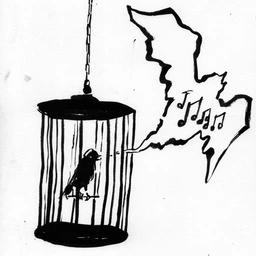

I’m confused


I’m confused


What about dyslexic people?


…and it was all a dream.


Peertube?


Is noone else gonna point out the absurdity that if the guy had been 1 year older, legally speaking there would’ve been nothing wrong?
The problem here is the grooming (which I think it’s worth noting that adults can be victims of as well), the abuse of power dynamics, and particularly in this case the exploitation of another’s inexperience for personal gratification.
But the article instead focuses on how the kid was “affected” by the teacher’s “criminal actions”, but then essentially just describes the kinds of consequences caused by the social stigma of student-teacher relationships. But this also happens in university, where it also carries negative social consequences, but not legal ones.
My point is simply that the legal system is a flimsy caricature of morality/ethics, and in articles like these it really shows.


The deregulation march you’re talking about is neoliberalism, and it hasn’t just affected USA. And in a sense neoliberalism is capitalism’s response to regulation.
It’s not that regulation doesn’t work per se, it’s that the (political) hierarchy through which it functions is susceptible to being taken advantage of, and inevitably it will be (*has been) taken advantage of by the capitalist class to protect their economic hierarchy.
For democracy to truly represent the people it’d need to be federated from the ground up through free association. Large scale organisation and cooperation would be ephemeral, existing when/if the need arises and dissolving as soon as projects are concluded (or cancelled). But within the rigidity of the current system(s), where power is consolidated at the ‘top’ through processes we’re lead to believe are necessary for ‘order’ (when their real purpose is of course control), horizontal forms of social organisation seem impossible (I like how Anark calls this - “hierarchical realism”).


Can we please stop pretending “regulation” is all that effective. It’s been tried, and has resulted in corrupt bureaucracy or given way to neoliberalism (and corporate bureaucracy).
What we need is a radically different system where the power truly is in the hands of the people, and not just nominally like in representative democracy (and which is completely lacking anyways in most workplaces). And what this requires is the construction of fundamentally different modes of production and human interrelation that will not resemble what we’ve got now, neither economically nor politically nor socially. Regulating capitalism won’t get us there.
Capitalist realism mindset


We’re in the age of the technofeudalists


Ever heard of libertarian socialism? It’s the OG kind of libertarianism and is great for those who aren’t all that into cognitive dissonance.


Finally a good use for LLMs


Maybe he could even do a little VR prison tour


When you talk about communism, are you talking about marxist-leninist / socialist states, or communism the idea(l) itself? Also how familiar are you with anarchism?
It seems that in the same way, people in this discussion have defined that communism is the mechanism for being generous and being willing to contribute to society.
You’re not far off, but yes that is more or less all that “communism” is:
a classless, stateless, humane society based on common ownership, follows the maxim “From each according to his ability, to each according to his needs.”
There is no prescription for how this may be achieved or how it might operate. Marxist-leninists want to reach it with a vanguard party and a socialist state, and this reflects how they see revolution as an event. Anarcho-communists instead see revolution as a process, and praxis takes the form of grassroots movements, aiming to bring about the necessary social change, building systems of free association from the ground up.


They don’t exist


Of course capitalism operates in a lot of gray areas, it’s how it seems freer than it actually is. “I need food” isn’t always a problem, but it is one often enough to be systemically problematic. Abandoning one’s hopes and dreams because one must be “realistic” is the norm.


Social democracy isn’t really socialist…
Anyways it’s just good to know that FOSS is built upon anarchist principles (of course, this doesn’t mean every FOSS project is anarchist) and is a great example of free association in practice. It helps demystify anarchism and communism.
Also what “delusions” are you talking about? Marxist-leninist ones?


I hope this is a lightbulb moment for you


In my experience a lot of italian (particularly “news”) websites basically say “accept cookies or sign up for our paid subscription”


It’s not about stealing data, it’s about not letting Zuck gain influence and control of the fediverse.
Absolutely! He simply has a very original take on “freedom”, but we all know that’s a tricky word to pin down, so don’t think about it too much, and leave it to the big dogs to tell you when your freedom is being protected.